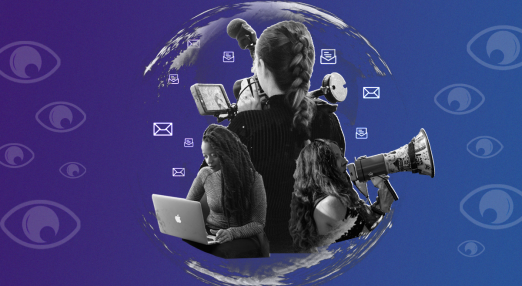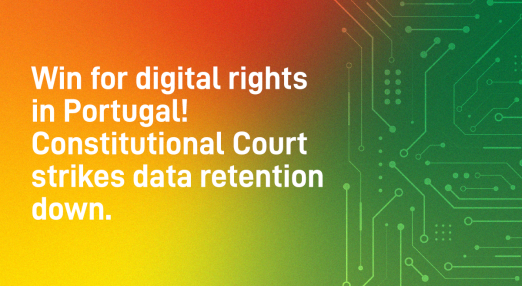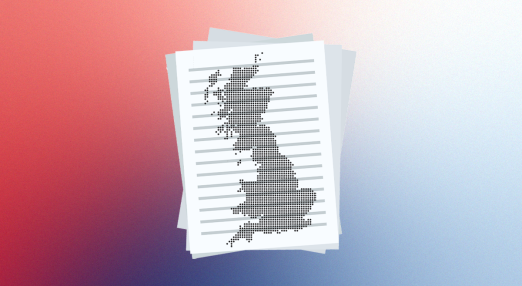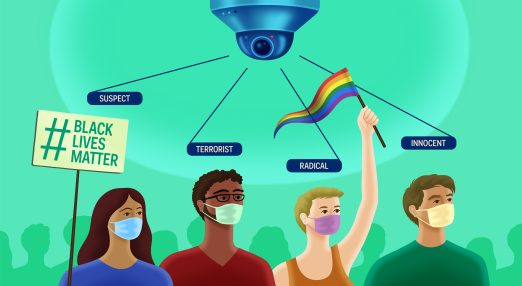Blogs
Filter by...
-

Elon Musk buying Twitter. What could possibly go wrong?
A new chapter of the surveillance capitalism saga happened just three days after the EU members adopted the final agreement on the Digital Services Act (DSA). The board of directors of Twitter accepted Elon Musk’s offer to buy the company for USD 44 billion. The deal is not closed yet, and now the ball is in Twitter’s shareholders to accept or reject the offer. This news has grabbed the media's attention worldwide and opened public discussions on how this would affect not only the features of Twitter but also freedom of speech in the digital sphere.
Read more
-

“E-evidence” negotiations: European Parliament must stand its grounds
The European Parliament and the Council have tremendous difficulties to agree on the issue of cross-border access to data by national law enforcement authorities. While the Parliament is trying to maintain as many fundamental rights safeguards as possible in the so-called “e-evidence” Regulation, the Council is stubbornly sticking to its position. If the Council’s vision overrides the Parliament, the legislation would seriously threaten free speech, privacy rights and the right to a fair trial. A coalition of digital rights, lawyers, journalists, media organisations and internet service providers associations are calling on the Council to show a greater spirit of cooperation and urge the Parliament to not excessively deviate from its original position.
Read more
-

Portugal: Constitutional Court strikes data retention down
On 19 April 2022, at the request of the Ombudsperson, the Portuguese Constitutional Court declared the unconstitutionality of the Portuguese data retention law.
Read more
-

Post-Brexit data protection laws are coming, and we should all be concerned about it
The UK Government are expected to reveal their Post-Brexit data protection bill on 10 May. They are proposing a framework that frames personal data in terms of economic assets and aims to "cut red tape" to promote their commercial use. These ideas draw considerable support among corporate lobbyists and large technology companies, which would no doubt leverage the "UK example" to advocate for weaker data protection standards in Europe. In turn, understanding and opposing these changes should not be seen as a domestic issue, but as a major threat for digital rights advocates across the globe.
Read more
-

Twitter Has a New Owner. Here’s What He Should Do
Elon Musk’s purchase of Twitter highlights the risks to human rights and personal safety when any single person has complete control over policies affecting almost 400 million users. And in this case, that person has repeatedly demonstrated that they do not understand the realities of platform policy at scale.
Read more
-

Threat to the protection of personal data in Belgium: European civil society is concerned
EDRi, alongisde multiple civil society organisations, is the signatory of an open letter addressed to the Belgian Parliament, demanding better enforcement of the European data protection rules and guarantees of political independence of the Belgian Data Protection Authority.
Read more
-

What happens next with upload filters in the EU after the CJEU copyright ruling
On 26 April, the Court of Justice of the European Union delivered its judgement on one of the most relevant cases for freedom of expression in recent years: Case C-401/19- Poland v Parliament and Council. The case was brought by Poland after the adoption of the controversial copyright Directive, and specifically because of its Article 17 that, according to EDRi and other civil society organisations, academics and politicians, could lead to mandatory use of upload filters on most online platforms.
Read more
-

When the political party votes for you: Can we have a fair election with surveillance political advertising?
A new regulation on online advertising was proposed last December to address political ads, which identifies in one definition, two techniques to deliver political ads: targeting and amplification.
Read more
-

Copyright: European Court of Justice strictly limits the use of upload filters
“Today’s ruling sets an important precedent for the protection of freedom of expression online. Nevertheless, it does not go far enough. The European Court of Justice does not completely rule out the use of upload filters to enforce copyright on online platforms. At least, however, the court confirms what civil society has been emphasizing for years: upload filters are unable to reliably distinguish between copyright infringements and legitimate forms of free expression such as parodies or quotations. It is therefore right that the highest court limits the use of upload filters under Article 17 of the EU Copyright Directive to uploads that constitute manifest infringements, such as uploads of entire movies.”
Read more
-

Irish DPC burns taxpayer money over delay cases
Irish DPC to pay tens of thousands in legal costs over 47 months delay in cases against WhatsApp and Instagram
Read more
-

Putting the brakes on Big Tech’s uncontrolled power
Will 2022 go down as the year the EU tamed Big Tech? In the very early morning hours of Saturday, 23 April, after 16 hours of final negotiations, EU lawmakers reached an agreement on the Digital Services Act (DSA), which is certainly a watershed moment for our digital future. As the deal reached is a top-level political agreement, the final text of the law is yet to be released.
Read more
-

Civil society reacts to European Parliament AI Act draft Report
This joint statement evaluates how far the IMCO-LIBE draft Report on the EU’s Artificial Intelligence (AI) Act, released 20th April 2022, addresses civil society's recommendations. We call on Members of the European Parliament to support amendments that centre people affected by AI systems, prevent harm in the use of AI systems, and offer comprehensive protection for fundamental rights in the AI Act.
Read more
